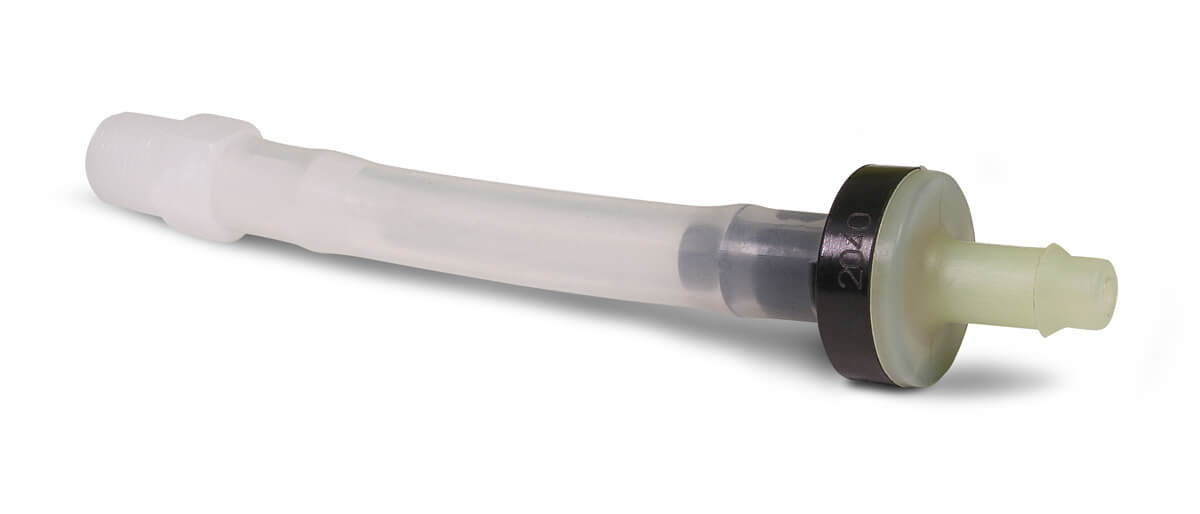Siphon Breaker Kit
Siphon Breaker Kit
Couldn't load pickup availability
Siphons can sink a boat. We offer a kit that will keep this from happening.
A typical situation is a bilge pump which turns on when the water level operates the bilge pump switch. This pumps the water overboard and in the process, removes all the air from the pipe leading from the pump to the outlet. If the outlet is high enough above the waterline, when the pump stops, air sucks back in the outlet as the water in the pipe drains back into the bilge. The only problem with this arrangement is some of the dirty bilge water dribbles down the topsides of your boat leaving a nasty stain. To reduce this problem, the outlets are often placed just above the waterline, or even below it so the discharge is out of sight. But now, when the pump stops, there is no way for air to get back in the pipe, and as the water drains out back into the bilge, seawater comes back in the outlet and your boat starts to sink. Even outlets just above the waterline can cause problems when the boat is heeling under sail, or has settled too low due to a leak, just when you need it the most.
So a siphon breaker is added at the highest point of the pipe running from the pump to the outlet. This is just an air valve which shuts under the pressure of water from the pump going out but opens and lets air in as soon as the pump stops.
Why siphon breakers fail.
Siphon breakers are notorious for not breaking a siphon. The reason is the valve is typically placed at the top of an inverted U pipe at the highest point. Every time the pump runs, the water shuts the valve but it also gets it wet with nasty salty oily gooey bilge water. After the siphon breaks, evaporation allows the liquid to evaporate and deposit a small amount of debris on the valve each time. Eventually it sticks closed and the boat sinks, or at least the bilge pump has to cycle continuously. The choice of materials for the valve is often poor, combining metals which corrode and rubber flaps which stiffen or rot.


